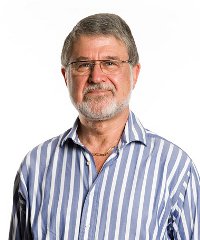Meet the Boss: Jannie Mouton, founder, PSG
‘Meet the Boss’ is a How we made it in Africa interview series where we pose 10 questions to business leaders across the continent.

“Thinking back, my biggest lesson was back when I was fired because I was too relaxed and too sure of myself,” says PSG’s Jannie Mouton.
Jannie Mouton, founder, PSG
1. What was your first job?
I was an articled clerk at PwC. I started immediately after varsity. I was about 22 years old when I started doing my articles. And from there I moved to be an accountant at an investment company.
2. What parts of your job keep you awake at night?
For instance, when we had the situation with Curro [a private education provider, and one of PSG’s investments]. Curro is in education, and there was a bit of negative press [around claims of racial segregation at one of Curro’s schools]. And then there was a huge amount of tweeting on Twitter that happened. Things like that worry me because what we want to build is a company that is making a difference in education in South Africa. To have political problems attached to that – it worries me.
3. Who has had the biggest impact on your career and why?
That is an interesting question. I think what has had the biggest impact on me is reading inspirational and financial books. But I can’t think of an individual in South Africa.
4. What is the best professional advice you’ve ever received?
We did a transaction for instance buying KWV. It’s a wine co-operative. And we used PSG as paper. At the end of the day, the value of PSG over the years just [increased] and KWV is still as flat [as it was then]… So if you use paper to buy something, the growth potential of that company must be better than yours, otherwise you have wasted something. So we will be a bit reluctant in years to come to use PSG paper to buy something. Whatever we buy must have better growth potential than us… otherwise you can become moderate.
5. The top reasons why you have been successful in business?
Thinking back, my biggest lesson was back when I was fired [at 48 years old as the CEO of the stockbrokerage SMK] because I was too relaxed and too sure of myself. And maybe I didn’t care enough about other people. I still have problems but I have changed a hell of a lot. And without people you can’t build a business. You need good, solid colleagues who you support and they support you.
6. Where’s the best place to prepare for leadership? Business school or on the job?
On the job. You learn the hard facts… We have to get our people, clients and shareholders on our side. So there are big groups that actually keep an eye on you. And that you will only learn through practice.
But I still think a formal education is important.
7. How do you relax?
Without a doubt, with my wife and my friends having a glass of wine and talking… My friends are all more or less my age. The first 15 minutes they just talk about their health and what problems they have. The next 15 minutes about their grandchildren. And we now have sort of a law where you can’t talk about only your health and children.
8. By what time in the morning do you like to be at your desk?
Okay, keep in mind that I am old and retired, so I arrive at 9am at the office. But through my life while I was still executive, I was never late once. And most of the time we started at 8am, wherever I was working. But I’m called a “non-executive” now.
9. Your favourite job interview question?
It would be something along the lines of what their dream or purpose in life is. I look for somebody who wants to do great things.
And I often tell people that if you have a job interview, read as much as you can about the company. Ask more about the company than what the salary is, the work hours are, and how much holiday one gets. Things like that immediately make an unbelievably good impression – if you go to an interview and you know the company.
10. What is your message to Africa’s aspiring business leaders and entrepreneurs?
There are definitely many opportunities in Africa. Yes, we have unbelievable challenges, but as I often tell people, we started a bank called Capitec in South Africa. It’s an unbelievable success. We don’t have a chance at [starting something like that] in America or Europe. So there are definitely opportunities… Starting a Capitec in Germany, France, England? It has already been done there.
That is the opportunity that you have in South Africa and the rest of Africa.
Johannes “Jannie” Mouton, a qualified chartered accountant, is the founder and chairman of PSG Financial Services and now serves as a non-executive director at the company. He is a renowned South African businessman with over 35 years of experience in financial management and investment banking.
His autobiography ‘And then they fired me’, is based on how he started PSG after being fired by his partners in 1995 at stockbroking firm Senekal, Mouton & Kitshoff (SMK) – a company he was CEO and co-founder of.

